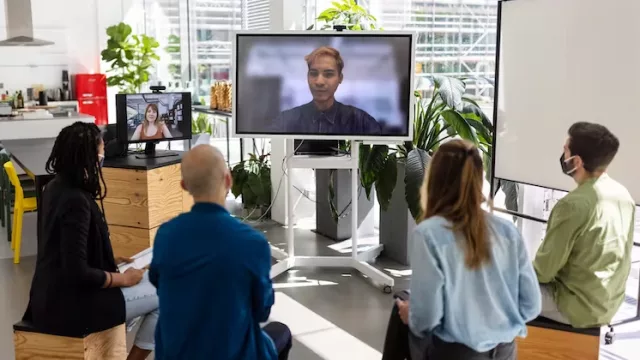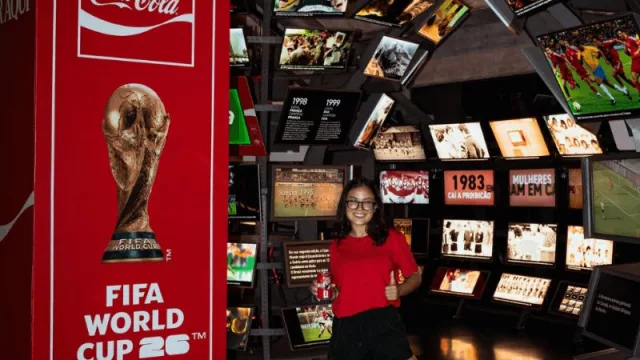But the surge in pandemic-induced remote work is changing these relationships and has made it more challenging to establish connections in the first place. To succeed, both employees and leaders must understand what each group is seeking to achieve and how they can benefit from the changing workplace.
How should leaders relate to, and support, their colleagues and subordinates? How can leaders discern what employees want out of the workplace and help them to get it? What can employees do to demonstrate their value while having fewer interactions with their co-workers and supervisors? What are the hallmarks of an organizational environment where employees can flourish?
As part of our ongoing research on organizations and work culture, we regularly interview leaders and employees, as first recounted in our book “Six Paths to Leadership.” What’s emerged are a few basic guidelines for a world where remote work is increasingly the norm and as workforce demographics and technologies shift.
Our preliminary analysis of their input has yielded several important themes:
Frayed social networks
Perhaps the most pressing issue for organizations emerging from the height of pandemic lockdowns is whether employees will return to a fully in-person workplace or continue in some variation of the remote mode of recent years. Calls for returns to the office are often framed by supporters as a need to manage the person-to-person interactions that spur innovation and a collaborative culture, particularly for new hires who need to learn the ropes, as well as a way to monitor productivity.
Others suggest that simply returning to in-person business over-relies on past models of an effective workplace, when it is clear that workforce practices must evolve for organizations to be successful. Our research suggests that for both leader and workers, it may be useful to address the challenges of building trust, respect and engagement in a more dispersed workplace.
Leaders we’ve interviewed tell us they want to believe that employees are giving their best effort and are mindful of the organizational mission. Employees want to feel valued, trusted and supported in their work and career paths, regardless of how much time they spend in an on-site company office.
Both sides acknowledge that with more hybrid work, there is less opportunity to build the well-rounded relationships that come from frequent, less structured personal interactions. This gives organizations less information to make “people” decisions and judgments, such as who deserves promotions, who could benefit from more support and who should be first to go in the case of layoffs or restructuring.
Creating a culture of collaboration
Good planning and extra effort is required for leaders and colleagues to seek out and understand the perspectives of others. While many companies report adopting project management software and other monitoring technology to manage hybrid work, our interviewees remind us that these platforms are better at tracking individual task completion than more holistic, complex and continuing assignments that require collaboration. To remedy this, leaders should not only engage employees in their individual work but also identify how employees can help one another.
For instance, in a related study, one of us found that work teams whose members know one another, communicate well and share responsibilities improve their ability to complete work on time and with fewer errors. Thus, it is important to help employees bring together their diverse perspectives and create motivating social support systems in the workplace.
A related concern is how new hires who are not familiar with the work culture of the organization before pandemic-related changes can learn the expectations of their workplace when placed in hybrid work arrangements.
Empathy and building relationships
Our research suggests that intentionality – doing your work with purpose and mindful awareness – can drive meaningful productivity, spurring both leaders and their employees to go beyond a simple “checkbox” approach to instead expend energy where it furthers the organizational purpose.
For example, leaders can identify paths for onboarding new hires – what employees should learn, which experiences they should prioritize, who they should connect with, how they should set goals. These types of steps can allow new hires to orient themselves to some degree as well, seeking out socializing experiences to gain knowledge, support and personal connections.
Employees in remote work situations, for their part, must increasingly own their career path and take responsibility for their own professional development. This includes acquainting themselves with the resources of the organization, while also taking responsibility for their own future.
Our discussions with leaders and employees also revealed that even among those who weathered the changes of the last few years, not everyone is having the same experience. People working for the same organization may be facing starkly different demands of their health and home conditions, which have been exacerbated by the pandemic and remote work. Leaders should be attuned to the stressors endured by their workforce, which requires good planning and extra efforts to understand the paths others are walking. Employees can help themselves, as well as their work performance, by building work-life boundaries that allow them the space needed to thrive in both arenas.
Critically, our research suggests that leaders and peers must add empathy to their set of tools. To truly empathize requires deeper understanding of others and building collegial relationships. That requires focus and time to better appreciate co-worker backgrounds and perspectives, and understanding how they deliver and gain value in their work.
The importance of people at work
As people’s work relationships grow more remote and are increasingly mediated by technology, we have found that organizations must attend to the person within the workplace. This may mean modifying work hours, increasing investment in employee training, boosting autonomy and making other adjustments designed to help employees bring their best selves to the workplace, while also granting a life outside of the company walls.
There are many factors that can influence the optimal set of practices for a given company – its industry, national and organizational cultures, diversity of employees and the expectations of each generation entering the workforce. Ultimately, our research shows that the path for organizations to succeed is cleared by getting to know and then supporting the people who make success possible.
Mark Clark, Associate Professor of Management, American University Kogod School of Business and Meredith Persily, Adjunct Professorial Lecturer, American University
This article is republished from The Conversation under a Creative Commons license. Read the original article.
![]()












Tu opinión enriquece este artículo: